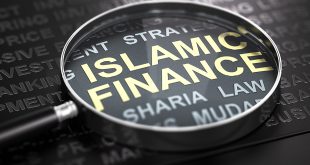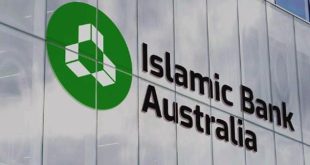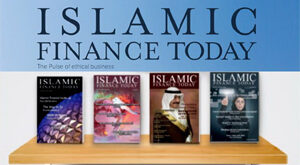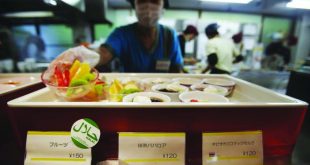Sukuk is a form of Shari’ah-compliant securitization which is gaining wide acceptance not only in Muslim states, but also in largely non-Muslim countries where it is seen as a very promising instrument to mobilize funds for economic development by government or public-related institutions.
Sukuk could be said to have evolved due to the needs of Islamic Banks and Financial institutions to diversify their investments and for meeting their immediate liquidity requirements. The evolution of Sukuk and its phenomenal growth over the past few years as a secondary market tool could be said to have been facilitated by the fact that it is based on real assets and that it could be bought and sold.
Sukuk is an Arabic term and is the plural of sakk which means ‘a certificate’ This mode of financing involves the securitization of a tangible asset so that investors could share in its profits and risks for which purpose a certificate vesting ownership in such investors is issued. This would entitle investors to a portion of the income in proportion to their investment. Although often termed ‘Islamic bonds’ Sukuk differs from a conventional bond in that there should be a true sale where the asset that has been sold should not remain in the books of the seller and should be transferred to the purchaser.
Sukuk is of various types and includes Ijarah-based Sukuk, Istisna-based Sukuk, Salam-based Sukuk, Mudarabah-based Sukuk and Musharaka-based Sukuk. The most popular form of Sukuk is by far sukuk based on Ijarah (Islamic Leasing) due to its flexibility and the lower risk it entails since the asset is already in existence and the income more or less guaranteed from the leased assets, making it easier to convince investors that they will get some good returns from it. There are basically two types of Ijarah-based sukuk, namely, that which is based on the ownership of the underlying asset ( ijarah ayan) or that which is based on the sale of its usufruct (ijarah manafi).
In ijarah manafi certificates are issued for the ownership of the usage of the asset and not the underlying asset itself. The returns from this type of investment come by way of the rent paid by the lessee which is distributed among the investors in proportion to their investment. In ijarah ayan, certificates are issued to investors conferring ownership of the underlying asset itself. Sovereign sukuks issued by states are normally of this type and comprise of the sale of public-related property such as airports, hospitals and schools to private investors.
Although there is unanimity as to the permissibility of sukuk by the Shari’ah scholars specializing in Islamic Banking & Finance, a controversy recently arose as to its permissibility following a highly sensationalized interview with a prominent Shari’ah scholar Mufti Taqi Usmani where he is reported to have stated that as much as 85 percent of the sukuks currently available in the market do not comply with Shari’ah requirements. All indications however are that he was misquoted and his statements taken out of context. In fact Mufti Usmani recently clarified his position at the Annual Shari’ah Conference organized by AAOIFI held in Bahrain from the 27th-28th May where he explained that he was referring to an undertaking in a Mudarabah or Musharakah-based sukuk where it is not allowed for any party to guarantee the performance of the sukuk.
According to Dr.Burhan Arbouna, Head of Shari’ah Compliance, UIB and a well known scholar on Islamic Finance what often happens in Mudarabah- and Musharaka-based Sukuks is that there is some sort of undertaking to repurchase the asset in question at the nominal value which creates a Shari’ah compliance issue. He contends that in these types of transactions, if there is an undertaking to purchase depreciated assets at the nominal value rather than the market value of these assets where depreciation would inevitably be taken into consideration, it becomes a sort of riba-based guarantee which is prohibited in Islam. However this does not mean that all Mudarabah- and Musharakah-based Sukuks are non-Shari’ah –compliant. What is necessary is that these should avoid undertaking to repurchase the assets at nominal value though an undertaking could be given to repurchase at market value.
Sukuks are today a leading instrument for mobilizing funds by both governments and corporates. Malaysia has taken a lead in the issuance of Sukuk and has pioneered a number of unique and innovative Sukuks that show much promise for the future. Bahrain has also played a big role in the development of the Sukuk market on the basis of both Ijarah and Salam. In this connection the Bahrain-based Liquidity Management Center (LMC) has played a significant role in issuing, arranging and creating secondary markets for sukuk. Recent years have also seen a Sukuk issued by Kuwait Finance House based on Ijarah and Istisna and a Sukuk issued by Darul Arkan of Saudi Arabia which is lead arranged by Unicorn Investment Bank. Qatar too has issued a Sovereign Sukuk.
These developments show that Sukuks are widely seen by governments as a promising tool to mobilize funds for public utility developments such as infrastructure development projects and by corporates as an instrument for tapping into the ready liquidity currently available in the Middle East and elsewhere. AAOIFI Standards for Sukuk have been in place for the past 5 years and it is likely that greater stringency will be needed as the industry progresses and expands to new areas.
© Islamic Finance Today – Pioneer Publications (Pvt) Ltd
 Sri lanka Muslims Web Portal Diversity and Inclusiveness
Sri lanka Muslims Web Portal Diversity and Inclusiveness




Making a profit by adhering to faith
By: Matthai Kuruvila
San Francisco Chronicle *
As credit markets have imploded, triggering a global economic crisis, Islamically correct investors have seen a change of fortune: The conservative principles this small group of devout Muslims clung to during the economic heyday has insulated them from the worst of the past year’s suffering.
Their renunciation of the interest-based economy kept them away from investments in financial services companies, whose stocks have collapsed, and out of traditional mortgages.
“There was a time two or three years ago that Islamic finance was considered simply too conservative, ” said Professor Ibrahim Warde, author of “Islamic Finance in the Global Economy” and an adjunct professor at the Fletcher School of Law and Diplomacy at Tufts University. “Right now, many people are recognizing that maybe it wasn’t such a bad thing.”
Dow Jones Islamic Market Indexes, which represent benchmarks for Islamically correct investment categories, have been outperforming their non-Islamically compliant counterparts by 3 to 4 percent in key indexes. The two Amana Income and Growth funds, the largest Islamic mutual funds in the country with $1.2 billion in combined assets, have been outperforming the S&P 500 in the past year by 13 and 7 percent, respectively. (Both Amana funds also outperform the S&P index on 5- and 10-year comparisons. )
Bay Area residents who bought homes through an Islamically compliant lender in San Jose, the Ameen Housing Cooperative, don’t have to worry whether their lender will work with them if they lose their jobs. Islamic lenders are required to work in good faith with distressed borrowers to figure out ways to make payments manageable – and co-op leaders say they will.
Islamic investing
Warde and other Islamic finance experts and investors caution that the crisis doesn’t mean that Islamic finance is a better model than Western capitalism. They say Islamic finance, a system of ethical finance supported on an institutional level, provides unique insight into an economic meltdown created in part by financial practices forbidden by strict observance of Islam.
“I don’t think there’s anything miraculous about Islamic finance, or that it’s a panacea,” said Warde, who will be speaking at a UC Berkeley School of Law symposium on the issue this month. “But we can understand why Islamic banks did well in the current financial environment. ”
Renouncing interest is the high-profile element of Islamic finance that relates to the current economic crisis. For Islamically correct investors, that means there are limits to how much debt a company can have or how much profit it can derive from interest-based investments. That criterion eliminated the possibility of holding stocks in financial services companies, like Citigroup or Washington Mutual, whose stocks lost 86 percent or all of their value last year, respectively.
Avoiding crisis’ practices
Islamic finance also prohibits selling assets you don’t own, selling someone’s debt and engaging in high-risk investments. Thus, there was no participation in practices that have been blamed for Wall Street’s meltdown: complex derivatives trading, short-selling and the $30 trillion market in credit default swaps.
While Islamically correct investing is a booming industry, it hardly guarantees good returns. The Iman Fund, run by Allied Asset Advisors and one of the largest Islamic mutual funds in the country, has performed worse than the S&P 500 and others in its category, according to Morningstar, a mutual fund rating service.
But performance alone isn’t the point of compliance with Islamic law, known as sharia. For the committed, investing finance with faith is about living with values.
“We don’t claim to our investors that we’re going to be consistently outperforming the market because we have sharia criteria,” said Monem Salam, director of Islamic investing and deputy portfolio manager for Saturna Capital, which manages the Amana funds. “We’re going to give our investors the best return they can (get) based on the criteria. If that means outperformance on certain indices, then great.”
The Islamic principles playing out across the larger stock market are also playing out in smaller, if no less significant ways for ordinary investors.
Housing cooperatives
In San Jose, the Ameen Housing Cooperative has helped roughly 30 members buy homes without mortgages. Yet the recession has had “no impact whatsoever” on the co-op, according to board member Humayun Sohel. The reasons have much to do with an Islamic requirement that the lender and the borrower share the risks and rewards of a loan.
Ameen members pool their money to give out loans. Borrowers put at least 30 percent down, and monthly payments are based on local rental values. Monthly payments pay down debt and pay dividends to Ameen members. In its 13-year history, Sohel said, Ameen has given a quarterly dividend of at least 3.8 percent and as much as 7.8 percent to co-op members.
When the deed of transfer is finally given to the borrower, Ameen members get a slice of the home’s increased value – or take a loss if the price has gone down. With the median home price dropping as much as 40 percent in Santa Clara County and many worrying about their jobs, Ameen remains confident.
Borrower loses equity
As long as the borrower is earnest, Sohel said, Ameen will work to reduce payments, though that may mean a borrower doesn’t gain equity or possibly loses some. If someone cannot pay at all for an extended time, Ameen will rent the home instead of selling it and locking in the loss, which is what banks do during foreclosures.
“What we are counting on is riding out this difficult time,” Sohel said.
Islamic compliance also precludes investing in things Muslims are expected to avoid, like pornography, tobacco, alcohol and gambling. Those prohibitions drew Juveria Aleem to the Amana funds. But the Oakland Web designer feels like the relatively lower losses on her investments have only reaffirmed her faith.
“Not only was I keeping myself spiritually clean by not engaging in that in my life, but financially, it was helping me,” Aleem said. “You cannot ever truly go wrong by practicing the principles of your faith.”
By M.S.Shah Jahan
On February 9, at the UN Human Rights Council sessions in Geneva, when countries raised the issues of Tibet and treatment of the Muslim minority of Xinjiang Province, China stoutly defended its human rights record, and a top official of China’s Supreme Court said, “China is fully committed to the promotion and protection of human rights.” He insisted their policies are guided by the rule of law.
Further, while Sri Lanka itself was under fire in the UN session for its treatment of its Tamil minority, Ambassador Dayan Jayatilleka went all out to support China on Tibet, saying, “China has ensured the political rights of its people.” We shall analyse here how truthful these two representatives were.
“I believe in Islam, I came here to deepen my faith, to learn more. I learnt about Islam at home from my family, but now I’ve come to college for formal training,” said 24-year-old, Bolo Alashankur. Most hope one day to become Imams in the mosques of the Muslim-dominated Chinese region of Xinjiang. But learning about Islam is difficult here. The curriculum of the College of Islam must be approved by the ruling Communist Party in Beijing, almost 2,000 miles away. Imams must attend political education camps and the authorities even dictate which version of the Koran should be taught.
Introduction of Islam in China
Islam was first brought to China by an envoy sent by the third Caliph Uthman in 651, less than 20 years after the death of Prophet Muhammad. The envoy was led by Said Ibn Abi Waqqas, the maternal uncle of the Prophet himself. Emperor Gaozong, the Tang emperor who received the envoy then ordered the construction of the Memorial Mosque in Canton, the first mosque in the country.
It was during the Tang Dynasty that China had its golden day of cosmopolitan culture which helped the introduction of Islam. The first major Muslim settlements in China consisted of Arab and Persian merchants.
Xinjiang is an autonomous region and the largest political subdivision of China. It accounts for more than one sixth of China’s total territory and a quarter of its boundary length. Older English-language reference works often refer to the area as Chinese Turkestan, Sinkiang, East Turkestan, or Uyghuristan. Xinjiang is home to several ethnic groups of various religious traditions but the majority of the region’s total population are adherents of Islam.
Among the Muslim faith, notable are Muslim Turkic people including the Uyghurs (an eight-million-strong community), Uzbecks, Kyrgyz, Tatars and the Kazakhs. There are also Muslim Iranian people including Pamiris and the Sarikolis/Wakhis, and Muslim Sino-Tibetans such as the Hui. Other non Muslim ethnic groups in the region include Han Chinese, Mongols, Russians, Xibes and Manchus.
The percentage of non Muslim Han Chinese in Xinjiang has grown from 6 percent in 1949 to an official tally of over 40 percent today. Much of this transformation can be attributed to settlers who built farms, towns, and cities over scattered parts of Xinjiang. In a way the government of China dilutes Muslim Xinjiang with the settlement of non Muslim Chinese.
But ethnic dilution is denied by officials “There is very little difference in the ethnic balance between now and the early 1950s.” The central government established the “Go West” policy to bridge the economic gap between east and west China. It has brought entrepreneurs here — but it certainly isn’t an issue of moving Han people to Xinjiang.
China’s war on terror
China’s war on terror is concentrated on Xinjiang. The province borders eight separate countries. At a press conference, Communist Party Boss Wang Lequan warned that the province was under attack. One group that fights for the independence of the province and the declaration of an Islamic state is ‘The East Turkestan Islamic Movement,’ which is considered a terrorist organisation by the Government of China, the United States, and the United Nations. On August 10, a wave of bomb attacks swept through Xinjiang, the largest surge of violence in the region in years where 20 policemen died. The central government sent security forces to quell the riots.
After the bomb attack, limits on religious practices, including observing Ramadan fast were put in place by local governments as a part of the broader security crackdown. Present law forbids students and teachers from fasting, prevents retired civil servants from entering mosques, and mosques cannot let outsiders stay overnight.
Any missionary work by outsiders is banned. Restaurants must maintain normal hours of business. Because of the sunrise-to-sunset fasting, many restaurants would close during daytime for Ramadan. Such day time closure is banned. The government warned against trying to force anyone to fast. Also it banned men from growing beards and women from wearing face veils as well as prohibiting local officials from fasting during the holy month. Children and students cannot be forced to attend religious activities.
Fasting banned
In nearby Xinhe County, the government decreed that Communist Party members, civil servants and retired officials must not observe Ramadan, enter mosques or take part in any religious activities during the month. Companies and families that have workers or visitors from outside the county are required to register the outsiders with the nearest police station and have them sign an agreement “on maintaining social stability.” According to local websites in China, these laws were imposed ostensibly to maintain security and stability during the month of Ramadan.
Local authorities visit mosques twice a week to make sure the rules are being followed. At the central mosque in Urumqi, the sights and sounds are not entirely Muslim. The old mosque was knocked down a few years ago and replaced by a handsome brick building. But when it was rebuilt, it came with the addition of a shopping mall. Now the faithful pray above a KFC and next to a Carrefour supermarket. Uighur men and women have been imprisoned for simply speaking to foreign journalists.
A Uighur who was unhappy about the redevelopment said, “It really isn’t appropriate. We come here to worship — but sometimes we can’t hear our prayers because of the music and singing from the bazaar.” Life is difficult for Muslims in Xinjiang, he said. Human rights groups accuse China of conducting a campaign of repression against its Muslim minority especially in Xinjiang. Others accuse China of muddying the waters between religious extremism and religious freedom. “Fear is definitely pervasive in Xinjiang,” said Nicolas Becquelin of pressure group Human Rights in China.
At risk
“People from the Uighur community are very much at risk of being arrested, detained, tortured or sentenced to labour camps for anything the government equates to separatist feelings, or for holding religious activities,” he said. When the true position in Xinjiang is so repressive towards Muslims, on February 12, hours before Chinese President Hu Jintao wrapped up his three-day official visit to Saudi Arabia in the capital Riyadh, a group of Saudi and Chinese students numbering 27, and 12 from China participated in the foundation laying of the Saudi-Chinese Friendship Park at a brief but colorful ceremony, where many high-ranking Saudi and Chinese officials and diplomats attended the event.
Yahya bin Abdul Kareem Al-Zaid, Saudi ambassador to China, said that the King Abdullah Scholarship Programme had sponsored a total of 147 Saudi students so far to study in China and by next year it would be doubled. Also he pointed out that 50 Chinese students were chosen late last year for enrollment in the King Abdullah University of Science and Technology and King Saud University.
Is the custodian of the Holy Mosques, King Abdulla unaware of the Ramadan restriction placed on Xinjiang Muslims? China has cordial relations with many African Muslim states. Dubai issues free visas to Chinese traders to set up a Chinese Bazaar and a China Town.
It is a pity Sri Lanka, a country that boasts highly of its Buddhist heritage, for the sake of political gain, ignores the plight of Buddhist Tibetans and sides with an atheist Communist regime that restrains all religions including Buddhism in the country. Does Dayan Jayatilleka refute the situation in Xinjiang too? Is not Lanka near to temple and far to God?